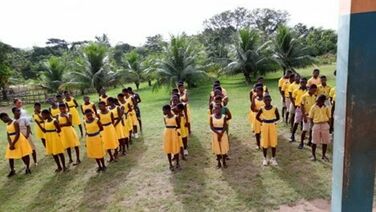
Awudome Avenui School
Awudome Avenui is a rural community situated in Ghana's Volta region. It has an approximate population of 4,500. Subsistence farming, trading, and hunting are the primary economic activities in the area. The residents are known for their friendliness and hospitality. The Awudome Avenui community school, founded in 1948 through a collaboration between the Government of Ghana and the local community, has seen little major development from the government since its inception. Consequently, community members regularly unite to provide support for the school via communal labor, often with the assistance of various organizations. The school currently has a population of 100 students, ranging from grade 7 to grade 9.
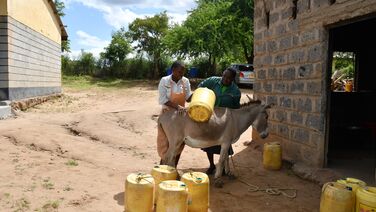
Mukuthu Secondary School
Mukuthu Secondary School was founded in 2013 through a community initiative. The parents acquired the school land, while the buildings and other infrastructure were acquired using government funds and support from the parents. The school has grown in terms of population and academic performance over the years. There are currently 110 students, 61 girls and 59 boys, and 14 administrators/staff.
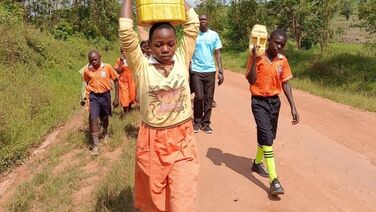
Nakaye Primary School
Nakaye Primary School is in Nayke Village in the rural district of Gomba, Uganda.

Namatapa Primary School
Namatapa Primary School, located in Kaselema Village, Zomba District, serves 1,312 students (670 girls, 642 boys) with 27 teachers and a catchment population of approximately 19,000 people from 27 villages. The school relies on a functional borehole with an Afridev hand pump for water supply but with a toilet-to-student ratio of 262:1—well above the recommended 50:1 standard—the sanitation situation is critical.
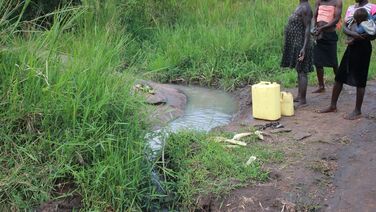
Paryem
Paryem, located in the Palaro sub-county of Gulu district in Uganda, has a total enrollment of 421 students.

Saviefe Deme Community School
Saviefe Deme is a rural community located in the Volta region of Ghana and has a population of approximately 3,100 people. The major economic activity in the community is subsistent farming, trading, and hunting. The people are very friendly and accommodating. Saviefe Deme Community School was established in 1964 by the Government of Ghana in partnership with the community. The school has not received any major development from the government since its establishment, so the community members always come together to support the school through communal labor with the support of other organizations. Being the only school in the area, the school currently has 150 students ranging from kindergarten to grade 9.
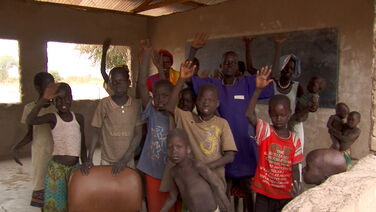
South Sudan School 3 (2026)
Our implementing partner, Water for South Sudan, operations teams are based in Wau and work in remote villages in the Bahr el Ghazal region of South Sudan. These isolated villages have extremely limited access to clean water, and often can only access contaminated water that will lead to sickness or even death. WFSS works with local governments and community leaders to determine the placement of wells. The goal is to create sustainable systems, incorporating well maintenance and training as part of the installation of a well.
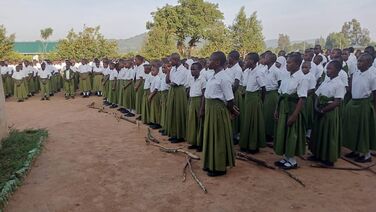
Tanangozi Secondary School
Tanangozi Secondary School is a government institution situated in Mseke Ward, Iringa Region. Currently, the school enrolls a total of 874 students, including 459 girls and 415 boys, across Forms One to Four. The staff comprises 20 members, which includes both teaching and non-teaching personnel.
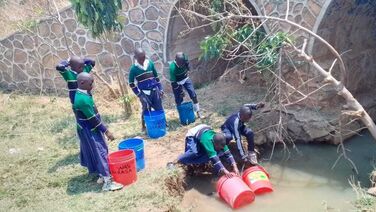
Ugwachanya Primary School
Ugwachanya Primary School is a government institution located in Mseke Ward, Iringa Region. The school has a total of 665 students and 18 staff members, which includes both teachers and non-teaching personnel. It plays a vital role in shaping the future of the community through education. However, it faces significant challenges due to a lack of a clean and reliable water source.